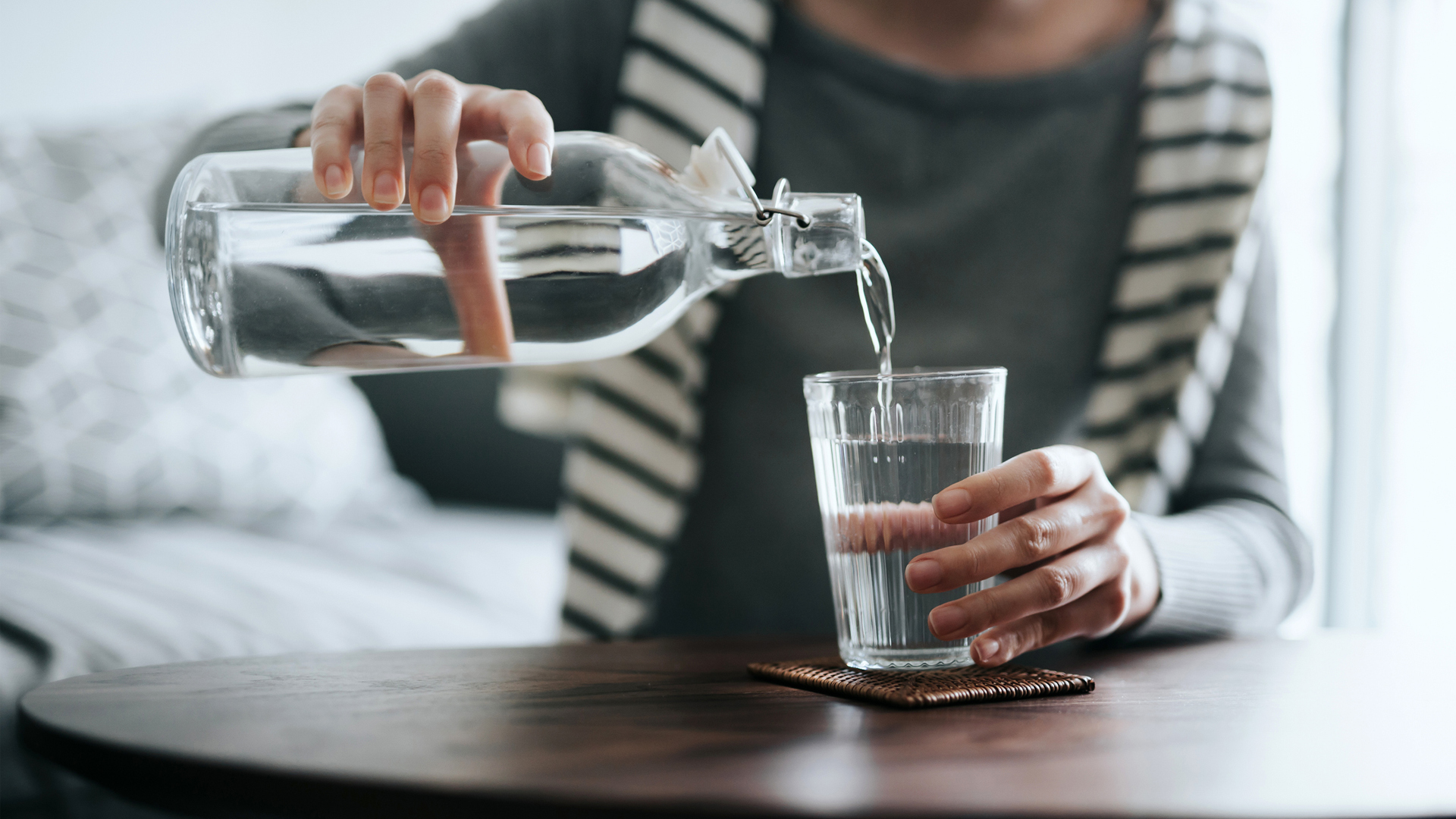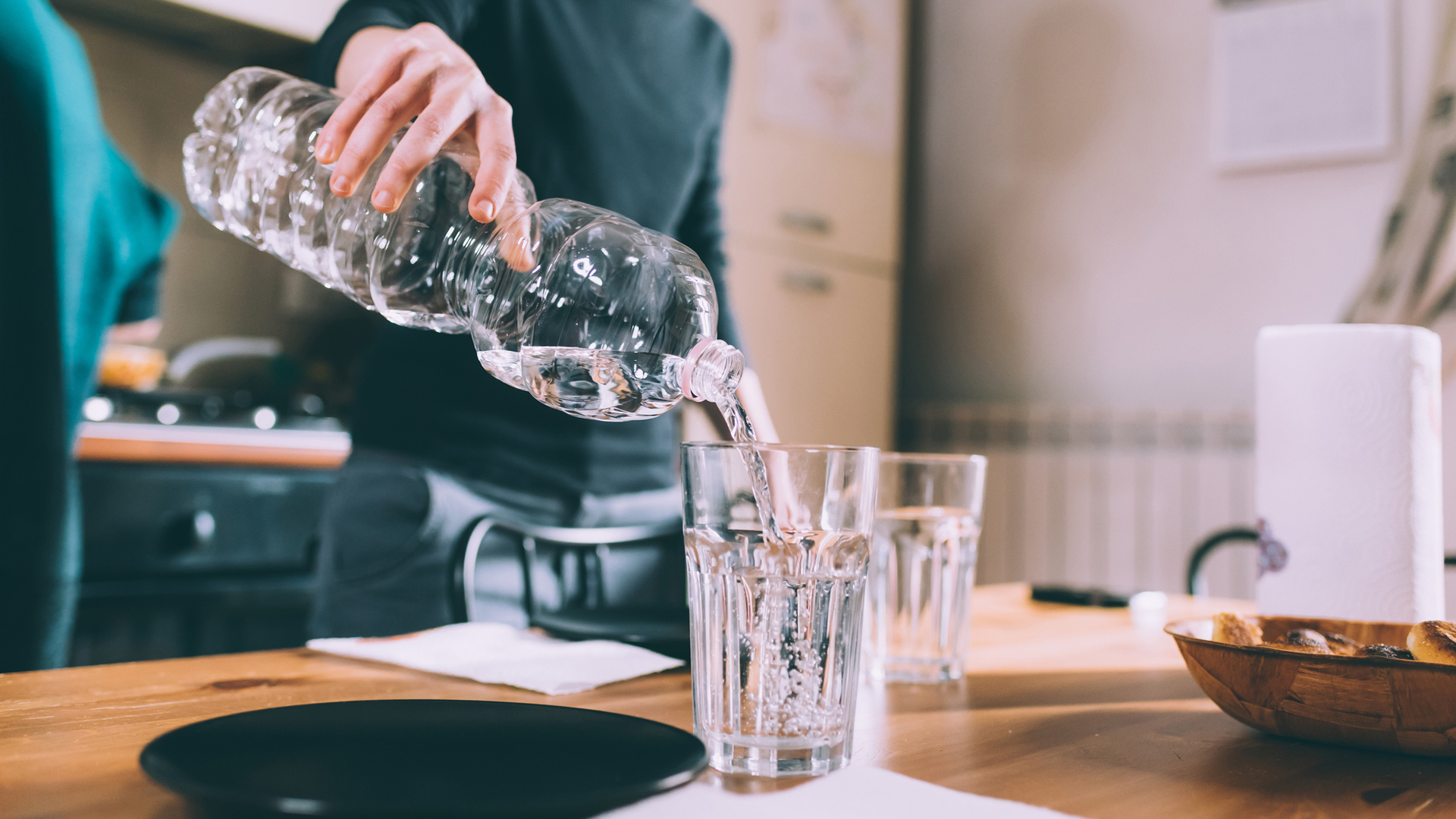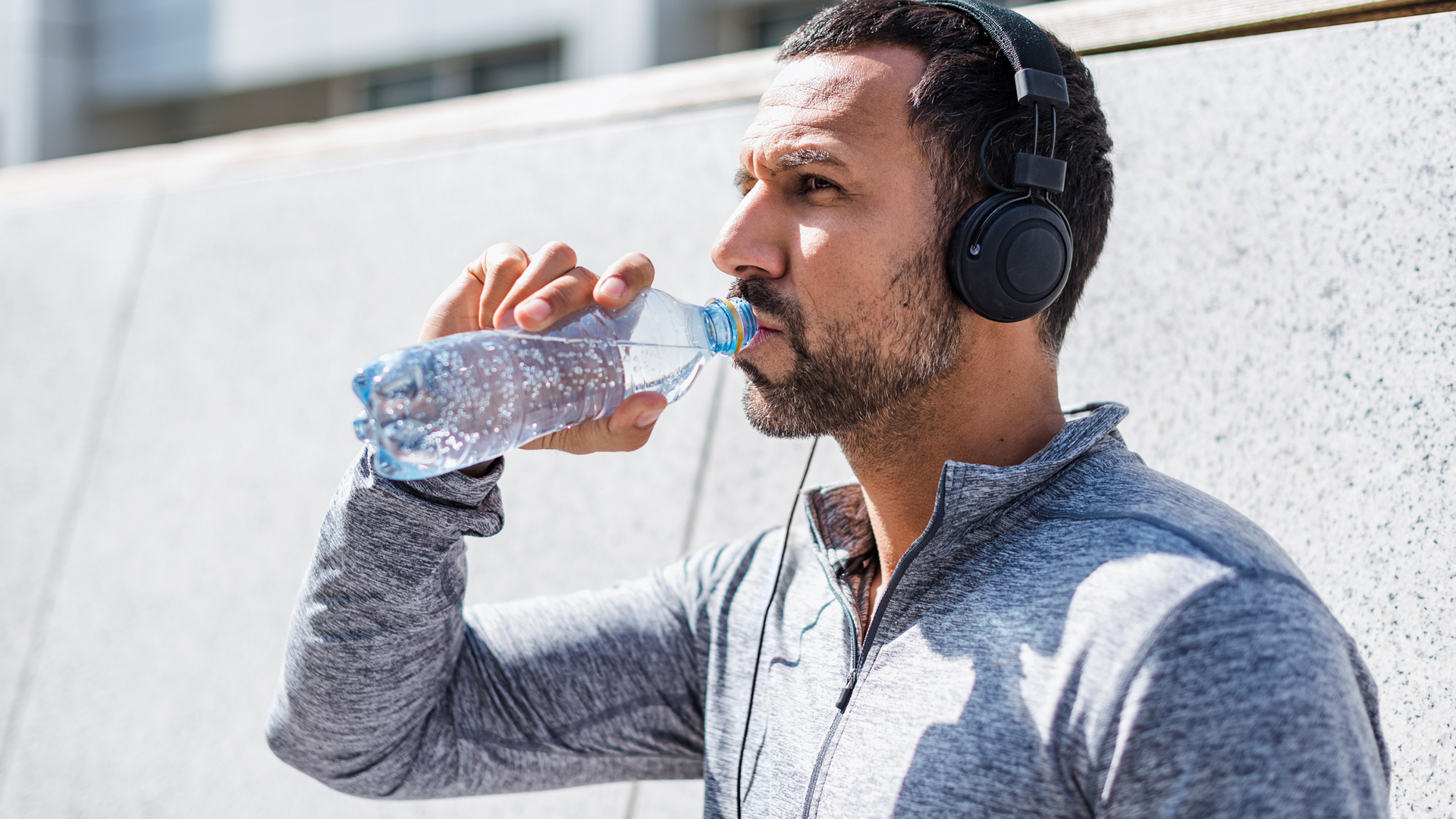Does drinking water help you lose weight?
Does drinking water help you lose weight? We look at the links between hydration and weight management

Does drinking water help you lose weight? While you’re probably tired of seeing ‘just drink water’ as a solution to everything, from dry skin to constipation, science suggests that the wet stuff may indeed help you to curb your appetite, boost your metabolism and achieve a downward trend on the scales.
This shouldn’t come as any surprise. After all, we’ve long known that drinking water plays a key role in keeping our bodies healthy and assisting in a range of bodily functions, from eliminating toxins to regulating body temperature. But as well as ensuring we stay alive, one of the biggest perks to drinking water is the discovery in recent decades that it may help us with both weight loss and maintenance.
In this article, we look at the link between hydration and weight loss, how much water you should be drinking if you want to lose weight, and how hydration levels might help us to achieve our fat loss goals. We also consider how hydration can help with overall health.
And if, like so many of us, you struggle to drink enough throughout the day, our guide to the best water bottles for gym will ensure you stay hydrated while you’re on the go.
What's the link between hydration and weight loss?
Replaces high calorie sugary beverages
One of the useful ways that drinking water can help you lose weight is by replacing high-calorie beverages. Water contains no calories, and if you swap out just one standard can of coca cola for a glass of water each day, you will be saving yourself around 140kcal, or around 7% of your daily intake on a standard 2000 kcal per day diet.
This may not seem like much, but a report in the Journal of Obesity and Metabolic syndrome indicates that a calorie deficit (where you are using more calories than you are consuming) is one of the most effective ways to lose weight. This formula of more calories out than calories in is used by medical professionals and trainers across the world to aid in weight loss, and 140kcal a day may help you on your way to a decent calorie deficit. If you drink multiple sugary drinks in a day, these calories add up, and by replacing them with water you can maintain a calorie deficit potentially without sacrificing too much on food.
Ruth Stone, personal trainer & fitness expert for Sweat Band, tells us that exchanging high calorie drinks for water can aid in weight loss.
Start your week with achievable workout ideas, health tips and wellbeing advice in your inbox.
“Water intake is one of the most controllable, impactful facets of potential weight loss you can take advantage of,” she says. “Drinking more water will result in a lower consumption rate of other, more calorific liquids – increasing your body’s ability to remain in a deficit whilst losing weight. On a functionality-level, water is vital to the body's metabolic rate, without it both fat and carbohydrate stores cannot be metabolised.”

May help to control appetite
A trial in the National Library of Medicine found that drinking 500 ml of water before a meal helped to reduce caloric intake and improved participants' overall weight loss progress compared to those who just ate less calories.
Dr. Deborah Lee, of Dr Fox Online Pharmacy, explains that sometimes our brains get confused between hunger and thirst, so it makes sense to drink water before eating to ensure we aren’t getting our signals crossed. “Some groups, particularly small children and the elderly, confuse the natural sensation of thirst with being hungry,” she says. “You feel fuller and this helps reduce your calorie intake. Chronic dehydration is believed to cause metabolic dysfunction.”
When coupled with a session on one of the best exercise machines to lose weight, drinking water is one of the easiest things you can do to help you maintain your weight or shed some extra pounds.
May improve metabolic function
Another National Library of Medicine trial found that over the course of a year, increasing the amount of water consumed by perimenopausal overweight women lead to a significant loss of body weight and fat over time, independent of exercise and diet. The cause of this weight loss may be due to a decrease in overall calories consumed or a potential increase in metabolism.
Stone also mentioned that water can help you burn calories while at rest. “A major way water impacts any potential weight loss is through substantially raising your resting energy expenditure,” she says. “In simple terms, these are the calories your body burns when completely resting. Drinking between 1-3 litres a day can aid rested energy expenditure in adults by between 24-30% for up to 30 minutes after drinking water.”
Reduces tiredness
Dehydration can leave you feeling tired and groggy, making you feel less motivated to exercise and more likely to snack on high-calorie foods to try and perk yourself up. Keeping yourself properly hydrated can help keep your energy levels consistent and your mood stable, according to a study in the Annals of Nutrition and Metabolism, which may indirectly help you lose weight.
Health and weight loss coach Clair MacKenzie tells Fit&Well that dehydration can make us tired and grumpy. “When we’re feeling dehydrated, we usually don’t feel great,” she says. “Dehydration can cause headaches and tiredness and often, especially if we have a habit of turning to food to feel better, we may find ourselves eating to comfort or distract ourselves. Dehydration also inhibits weight loss by contributing to constipation, hunger, lethargy and reduced break down of fat cells"
Lots of us are dehydrated without realising it. Check out these five signs you need to drink more water.

How much water should you drink to lose weight?
A study by the Journal of Clinical and Diagnostic Research found that drinking 500ml of water three times a day before meals decreased body weight, BMI and body composition scores of overweight subjects. This was on top of the subject's usual water consumption.
MacKenzie recommends checking your urine to ensure that you are properly hydrated. “You should drink enough water that your body is adequately hydrated whether you are wanting to lose weight or not,” she says. “The amount will vary depending on your size, activity level, the weather, and the foods that you eat. The best way to ensure you’re getting the right amount is to check that your urine is clear or a very, very pale-yellow colour. Use that as your guide to check and ensure you’re getting enough water.”
However, Dr Lee also warns of the dangers of overhydration. “It’s dangerous to drink too much water. This can lead to water intoxication, low sodium levels, fits and death. 2L per day is a safe amount. Don’t drink more than 3 L of water in a day unless you are participating in extreme sports and have had specific advice.”

Lou Mudge is a Health Writer at Future Plc, working across Fit&Well and Coach. She previously worked for Live Science, and regularly writes for Space.com and Pet's Radar. Based in Bath, UK, she has a passion for food, nutrition and health and is eager to demystify diet culture in order to make health and fitness accessible to everybody.
Multiple diagnoses in her early twenties sparked an interest in the gut-brain axis and the impact that diet and exercise can have on both physical and mental health. She was put on the FODMAP elimination diet during this time and learned to adapt recipes to fit these parameters, while retaining core flavors and textures, and now enjoys cooking for gut health.
